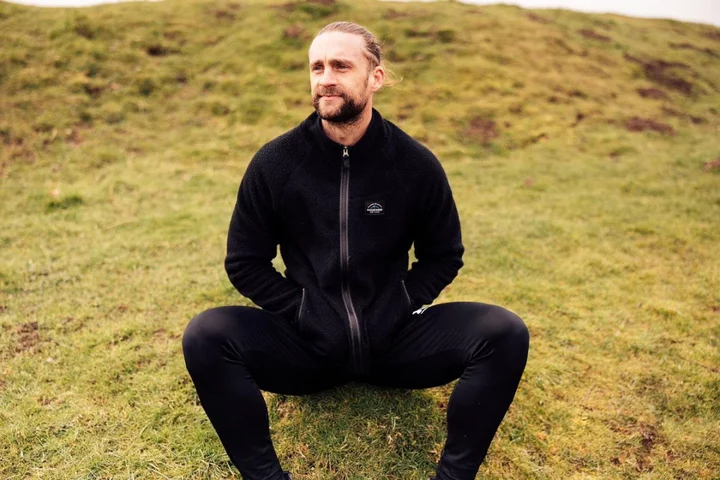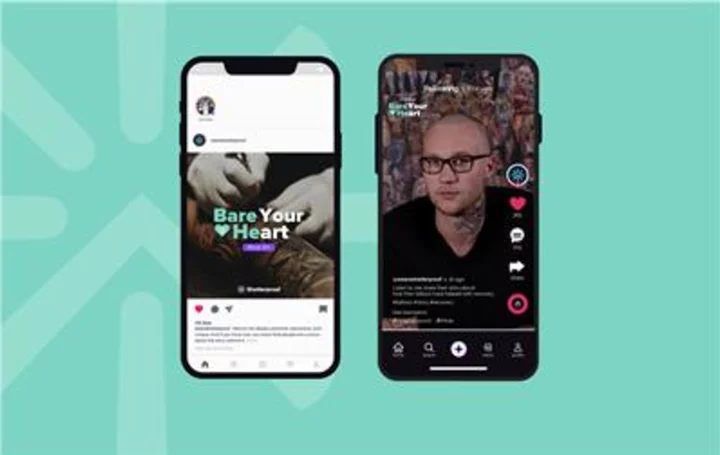
Panasonic Is Testing 'Power-Generating Glass' Panels for Buildings
Panasonic is testing "power-generating glass" which it expects to start selling by 2028 for use
2023-09-01 20:22

Fraser Franks undergoing heart surgery – four years after ‘hidden’ condition cut short football career
Former Newport defender Fraser Franks faced a difficult “grieving process” when a heart problem cut short his football career at age 28. But four years on, as he prepares for surgery that will ultimately save his life, he is “grateful” the condition was picked up early – as many people aren’t even aware they’re at risk. “I’ll be having a mechanical valve fitted and work done on my aorta,” Franks, now 32, told PA Media. His surgery is set for September 4. “It is a big operation and I’ll be in hospital for about 10 days. And the recovery after, I won’t be able to lift anything, even a bag of shopping, for two to three months. With a four-year-old daughter, that’s going to be difficult for me and her,” added Franks, who shares daughter Nellie with his wife, former S Club 8 singer Stacey McClean. “It’s been a lot to get my head around. There will be certain things I can’t do afterwards and a lot of lifestyle adjustments, but I’m really happy and content with it. I’m grateful that this has been found and that there’s a solution for me, where unfortunately a lot of people haven’t got that. “I’ve had conversations with cardiologists and surgeons [who’ve said] this is going to save my life, I probably wouldn’t live much longer with the heart I’ve currently got. So I’m really grateful for that, and it’s only through playing for a professional football club that this was picked up.” Franks was born with a bicuspid valve – meaning his aortic valve, which helps control blood flow in the heart, had two cusps (flaps) instead of the usual three. The condition is believed to affect around one in every 100 people, but it often doesn’t cause symptoms and only becomes serious if the valve begins to leak or develops severe narrowing (aortic stenosis), which is what has happened in Franks’ case. A routine medical at 16 first picked up the defect. Franks, who signed with Chelsea at age eight, had always been fit and healthy, but when he signed with Brentford at 16, like all players joining pro clubs he was given a heart scan. Further investigations revealed the bicuspid valve, but because it wasn’t causing problems, he was given the green light to continue as normal. Franks carried on, trying not to give it too much thought – until at 28, he suddenly started feeling unwell after a game and was rushed to hospital the next day, worried he was having a heart attack. “I wasn’t having a heart attack or anything like that, but I contracted an infection. While I was in there though, I told them I’d had this heart issue when I was 16, so they scanned me and saw the condition had worsened,” he recalled. “I’d developed aortic stenosis and the valve was leaking a lot more. Then it was deemed unsafe for me to carry on playing football, so I had to stop playing there and then.” London-born Franks has teamed up with the British Heart Foundation for their September Spotlight campaign, which aims to shine a spotlight on hidden heart conditions. His story highlights how heart problems can potentially affect anyone – including those who are young and seemingly very fit and healthy. Even when symptoms are mild or barely noticeable, undetected issues could become serious and even life-threatening, which is why research and awareness are so vital. Plus, as Franks has experienced, there are complex layers and emotional challenges to living with a hidden heart condition too. Being forced to suddenly retire early when he’d previously felt fine – and still looked well on the outside – was tough. “Ever since age eight, I’d been known as ‘the footballer’. It had been my whole identity, so to retire at 28 out of the blue was difficult,” Franks explained. “I think I kidded myself in the first six months, where I was saying, ‘Yeah I’m fine, I’m enjoying retirement and all that good stuff’. But I was really struggling and drinking heavily. “I reached out and got some help and had to do a lot of therapy. It really is a grieving process, and I had to figure out who I was and what I enjoyed away from being ‘the athlete’. “And I didn’t play at the top level, so I didn’t have savings in the bank – I had to pretty much get to work straight away and earn a living. My wife was heavily pregnant then too, so there was a lot of stress and overwhelm at that period.” Yoga and meditation also proved a huge help in coming to terms with everything, and Franks has since found a new sense of purpose, channelling his experiences into helping others. “I do a lot of work around addiction and alcohol now, because I really struggled with those things. That’s become a big part of what I do now, helping people who want to transition away from sport, and working with young athletes on addiction and mental health.” He took up yoga as a gentle form of exercise when doctors told him strenuous sport was too risky. “I just completely fell in love with it,” Franks added. “I’ve found a real passion for it. It’s actually a goal of mine now – it’s going to be something I’ll be thinking about when I’m in hospital – when I’m healed, I want to go to India or Bali and actually earn a qualification and get trained as a yoga teacher. “Instead of focusing on all the things I’m unable to do, that’s something I will be able to do. That brings me a lot of comfort.” This September, the BHF is shining a spotlight on hidden heart conditions and urging everyone to get involved by supporting the charity however they can, with stories, stuff, time or money. Visit spotlighton.bhf.org.uk Read More Charity boss speaks out over ‘traumatic’ encounter with royal aide Ukraine war’s heaviest fight rages in east - follow live 4 viral TikTok make-up trends you’ll actually want to try Childhood Cancer Awareness Month: What are the warning signs that your child might have cancer? How students heading to university can save some cash and budget wisely
2023-09-01 20:19

Dahua Revolutionizes Fire Safety Inspection in Power Station
HANGZHOU, China--(BUSINESS WIRE)--Sep 1, 2023--
2023-09-01 20:16

David Bowie’s fashion daughter Lexi declares art has helped her out of ‘dark places’
After the singer’s cancer death in 2016,David Bowie’s fashion designer daughter Alexandria Zahra Jones has says making art helped her battle mental health issues.
2023-09-01 19:22

Astrologer explains why you might be feeling a little 'odd' at the moment
Have you been feeling slightly off recently? Have things not been working in your favour? Well you're not alone – and astrologers believe there's a mystic reason behind it. There's been a recent spike in TikTok uploads exploring retrograde, but what actually is it? In short, retrograde simply means when a planet is moving in the opposite direction. The age-old astrological theory has been researched for thousands of years – but now, thanks to social media and a drive towards self-care and mindfulness, interest in astrology has heightened. Most people will be familiar with the phrase 'Mercury retrograde', but the motion can also happen to all of the planets. Currently, there are seven planets in retrograde. Janelle Palibrk told AU News that she believes one planet can leave people feeling "sensitive" or "intense". However, she claims that "with 7 planets in retrograde, it’s going to be almost impossible to avoid some kind of response, which is why as a collective we are all feeling a little stressed and uncomfortable." According to Yoga Journal, the dates are: Pluto retrograde: May 1 – October 11, 2023 Neptune retrograde: June 30 – December 6, 2023 Saturn retrograde: June 17 – November 4, 2023 Venus retrograde: July 22 – September 3, 2023 Chiron retrograde: July 23 – December 26, 2023 Mercury retrograde: August 23, 2023 – September 15, 2023 Uranus retrograde: August 28, 2023 – January 27, 2024 Jupiter retrograde: September 4 – December 31, 2023 @_thelunarchild @amydemure Personal readings are available ✨ #zodiac #zodiacsigns #horoscope #astrology @innerworldsastrology #greenscreen Why you’re feeling stuck #astrology #zodiac #horoscope Meanwhile, David J. Helfand, Professor of Astronomy and Columbia University Chair, slammed the astrological theory as "arrant nonsense." Helfand previously told Indy100 that the retrograde motion of Mercury is a "simple consequence of the fact that we observe the sky from a moving platform we call Earth as it orbits the Sun. The other planets also orbit the Sun, all in the same direction." "The apparent motion of any planet as observed from Earth is a combination of the orbit of the planet and the orbit of Earth," he added. "Simple geometry shows that roughly three times a year (for Mercury – less often for other planets on longer orbits), these combined motions give the Earth-bound observer the illusion that the other planet has reversed its direction of motion compared to the background stars." He stated that the orbit of Mercury is governed by laws of gravity and is completely unchanged, which has "been well-understood for over 400 years – it's hardly a new idea." Helfand continued: "But apparently, some people prefer 2000-year-old views of the world in which the planets govern their lives – no need to take any personal responsibility then, is there? "In fact, the gravitational force of Mercury on an Earth-bound you is less than the force of your dog on you when you pat him or her on the head." He said: "Indeed, patting your dog on its head is likely to have a positive influence on your mood. Maybe people should try that instead of contemplating arrant nonsense about the planets." Sign up for our free Indy100 weekly newsletter Have your say in our news democracy. Click the upvote icon at the top of the page to help raise this article through the indy100 rankings.
2023-09-01 18:54

Shatterproof Launches Bare Your Heart Campaign
HARTFORD, Conn.--(BUSINESS WIRE)--Sep 1, 2023--
2023-09-01 18:20

'Barbie' isn't officially showing in Russia. That hasn't stopped Barbiemania hittlng the country
This summer's blockbuster "Barbie" has made it to Russia despite not being officially released there due to the war in Ukraine, and it seems Barbiemania has infatuated many Russians even as the movie draws condemnation from officials.
2023-09-01 17:18

Childhood Cancer Awareness Month: What are the warning signs that your child might have cancer?
It’s heart-breaking to see a child that’s seriously ill, particularly when they’ve got cancer and might not survive. But children do get the disease – and it’s being highlighted during September’s Childhood Cancer Awareness Month. Fortunately, it’s not common. But every day in the UK, 10 families receive a cancer diagnosis for their child, teenager or young adult, and it’s the leading cause of death in children under 14, according to the charity Children With Cancer UK (CWCUK). However, Jeanette Hawkins, chief nurse at the Children’s Cancer and Leukaemia Group (funded by Young Lives vs Cancer), stresses that childhood cancer isn’t as rare as people might think, with a similar risk as diabetes, epilepsy and bacterial meningitis. “Use of the word rare for childhood cancer is a barrier to diagnosis as both GPs and parents therefore don’t consider it’s possible,” she explains. “Families, on average, have three to five GP visits before cancer is suspected. We need to reduce that by increasing awareness. Remember that childhood cancer is often a constellation of non-specific persistent symptoms, rather than a single ‘red flag’ that would alert a GP. “If you’re worried about your child keep going back.” Christiana Ogunbote, head of research at CWCUK, says childhood cancer accounts for less than 1% of all cancers in the UK, and explains there are 12 main categories of cancers affecting children, with the most common being leukaemia (30%), brain, central nervous system (CNS), intracranial tumours (26%) and lymphomas (11%). Ogunbote says cancer symptoms in children can vary widely depending on the cancer type and where it is in the body, but points out: “Often the individual symptoms of cancer can be similar to common childhood illnesses, so it can be hard to identify. “If a symptom progresses or doesn’t get better as quickly as expected, we would suggest getting it checked out by a medical professional. It’s useful for parents who know what’s ‘normal’ for their child to be aware of the signs and symptoms of cancer, as earlier diagnosis will support better outcomes for children and young people.” Here, Ogunbote outlines the symptoms of the three most common childhood cancers… 1. Leukaemia Symptoms of leukaemia in children and babies, which may be acute myeloid or acute lymphoblastic leukaemia (ALL), can include frequent and persistent infections, unusual bleeding and/or bruising, tiredness, paleness, breathlessness and, with ALL, coughing and anaemia. “Childhood leukaemia develops quickly,” says Ogunbote. “but it’s possible for some or all of these symptoms to be apparent.” She says a leukaemia diagnosis can be made from a blood test, which may reveal low numbers of normal white blood cells and large numbers of abnormal white blood cells. Further tests will then be done on a sample of bone marrow to confirm the diagnosis. 2. Brain and spinal tumours The symptoms of brain and spinal tumours (central nervous system tumours) vary between age groups, says Ogunbote, but symptoms in babies may include persistent/recurrent vomiting, balance/co-ordination/walking problems, abnormal eye movements or suspected loss of vision, behaviour change (particularly lethargy), fits or seizures (not with a fever), abnormal head position such as head tilt or stiff neck, and increasing head circumference. Children’s brain tumour symptoms are similar to symptoms in babies, but may also include a persistent/recurrent headache, blurred or double vision, fits or seizures, reduced consciousness and abnormal growth. Ogunbote says symptoms vary depending on the type and site of the tumour, and develop much more slowly with low grade tumours. But she stresses: “It’s important to remember that many of these symptoms are extremely common, and experiencing one by itself is rarely a sign of a brain tumour.” A CT or MRI scan will be done if a brain tumour is suspected, and if the scan confirms the diagnosis, further investigations will determine the type of tumour and best treatment. 3. Lymphoma Children may get a cancer of the lymphatic system known as either Hodgkin or non-Hodgkin lymphoma, and Ogunbote says symptoms of both include a persistent (lasting a few weeks) painless swelling of a single lymph gland, usually in the neck, or possibly in the armpit or groin with non-Hodgkin, a cough or breathlessness (if glands in the chest are affected), fevers, sweats, and weight loss. There may be itching with Hodgkin lymphoma, and with non-Hodgkin there may be tiredness, feeling full after a small meal, stomach pains (if abdominal lymph glands are affected), and sleep sweats. Diagnosis is confirmed by removing part or all of an affected lymph gland, usually under general anaesthetic, and doing a biopsy on it so the cells can be examined in a laboratory. Further tests, like x-rays, CT and MRI scans and blood tests, will also be carried out to determine the size and position of the lymphoma and whether it has spread. This is known as staging. “Many of the symptoms of lymphoma can also be symptoms of other illnesses, so this can make it difficult to diagnose,” explains Ogunbote. “Symptoms your child might experience depend on where the lymphoma is in their body, and symptoms vary from child to child, even if they have the same type of lymphoma.” Read More Charity boss speaks out over ‘traumatic’ encounter with royal aide Ukraine war’s heaviest fight rages in east - follow live 4 viral TikTok make-up trends you’ll actually want to try Daily aspirin dose could help prevent diabetes in older people – researchers Secondhand September: The best places to buy pre-loved fashion online
2023-09-01 16:25

Noel Gallagher reveals secret collaboration with Black Keys is on way: ‘It’s pretty cool!’
Ahead of touring his new solo album, Noel Gallagher says he worked in the studio on “pretty cool” new music with the Black Keys after they asked him to be a co-writer.
2023-09-01 16:24

Soccer-Dortmund sign Bundesliga top scorer Fuellkrug on three-year deal
BERLIN Borussia Dortmund have signed Germany international and last season's Bundesliga top scorer Niclas Fuellkrug from Werder Bremen
2023-09-01 15:57

It’s Getting Harder to Find Mining Engineers a Green World Needs
Digging up the metals that go into power grids and electric cars is crucial to the energy transition.
2023-09-01 15:53

Daily aspirin dose could help prevent diabetes in older people – researchers
Taking 100mg of aspirin every day could lower the risk of people aged 65 and over developing type 2 diabetes, researchers have suggested. Scientists – led by Professor Sophia Zoungas of Monash University’s School of Public Health and Preventive Medicine in Melbourne – said their findings warrant further exploration but do not change the current clinical guidelines on older people taking aspirin. Some 16,209 people were included in the study; 8,086 were given aspirin while 8,123 were given a placebo. All were aged 65 or over and did not suffer from cardiovascular disease, physical disabilities or dementia. Although these new findings are of interest, they do not change the clinical advice about aspirin use in older people at this time Prof Zoungas Over a median follow-up of 4.7 years, researchers found the group given aspirin had a 15% reduction in type 2 diabetes and a slower rate of increase in fasting plasma glucose (FPG) levels. The authors said: “Given the increasing prevalence of type 2 diabetes among older adults, the potential for anti-inflammatory agents like aspirin to prevent type 2 diabetes or improve glucose levels needs further study.” The findings will be presented to delegates at the annual meeting of the European Association for the Study of Diabetes (EASD) in Hamburg in October. However, the study was a follow-up of the ASPREE trial, which was published in 2018. It found taking aspirin led to a 38% increased risk of major haemorrhage in older adults without any reduction in incidence of cardiovascular disease. Prof Zoungas said her team’s research does “not change clinical advice” around older people taking aspirin. According to the NHS, a low-dose of aspirin – 75mg – each day can help to prevent heart attacks and strokes in people who are at high risk of them, but should only be taken if your doctor recommends it. Prof Zoungas added: “The earlier published trial findings from ASPREE in 2018 showed aspirin did not prolong healthy independent living, but was associated with a significantly increased risk of bleeding, primarily in the gastrointestinal tract. “Major prescribing guidelines now recommend older adults take daily aspirin only when there is a medical reason to do so, such as after a heart attack. “Although these new findings are of interest, they do not change the clinical advice about aspirin use in older people at this time.” In June, a paper published in The Lancet Diabetes and Endocrinology journal claimed 1.3 billion people could be living with diabetes by 2050 – more than double the 529 million cases in 2021. Academics described the condition as one of the “biggest public health threats of our time”. However, Dr Faye Riley, research communications manager at Diabetes UK, said the link between aspirin and diabetes prevention “remains unclear”. She added: “With more than 2.4 million people in the UK at high risk of type 2 diabetes, there’s an urgent need to find new and better ways to help people avoid the condition. “While this research found that taking a daily low-dose aspirin was linked to a small decrease in risk of type 2 diabetes in older people, whether aspirin has a role to play in type 2 prevention remains unclear, and this approach may have unwanted side effects. “We know the use of daily aspirin increases risk of potentially serious bleeding in people with diabetes and others, so we advise only taking daily low-dose aspirin if your doctor recommends it and they will discuss exactly what dose is right for you. “We do know the best ways to reduce your risk of type 2 are getting support to lose weight if you need to, eating a healthy, balanced diet and doing more physical activity. “ Read More Charity boss speaks out over ‘traumatic’ encounter with royal aide Ukraine war’s heaviest fight rages in east - follow live Secondhand September: The best places to buy pre-loved fashion online What are gynaecological cancers and how can you prevent them? Alzheimer’s: How and when to talk to someone about their memory loss
2023-09-01 15:49
